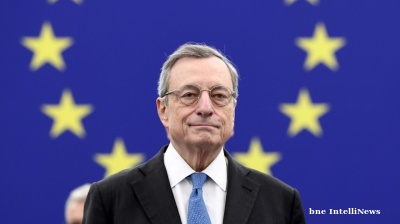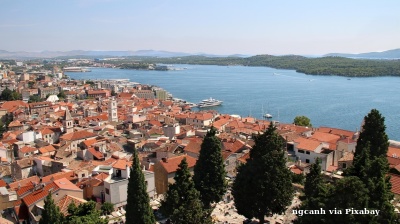Croatian shops were almost empty on January 24 when a one-day shopping boycott was organised in protest against high prices.
The campaign, widely circulated on social media, urged citizens to abstain from purchases for a day to pressure retailers and policymakers into taking action to rein in prices.
As of the morning of January 24, there were reports of a substantial fall in the number of people going to shops across Croatia.
“The first consumer boycott began this morning … Reports are coming in from all over the place. Empty and half-empty parking lots, only some shoppers in the shops and some walking there,” said a message on Facebook from the Halo, inspektore group.
“BOYCOTT is a strong message to those who have so far done nothing to start the mechanisms to combat inflation and price savagery!” The organisers added.
High prices
Croatia entered 2025 grappling with one of the highest inflation rates in the European Union. According to Eurostat, the EU’s statistical office, Croatia’s annual harmonised consumer price index (HICP) inflation rate rose to 4.5% in December 2024, up from 4.0% in November, trailing only Hungary and Romania within the EU. In contrast, countries such as Ireland and Italy recorded much lower annual inflation rates of just 1.0% and 1.4%, respectively.

Croatia had one of the highest annual inflation rates in the EU in December. Source: Eurostat.
Meanwhile, Croatia's consumer price index (CPI) rose by 3.4% y/y in December, according to the Croatian Bureau of Statistics (DZS).
Despite government optimism that prices will fall, the impact of rising consumer prices continues to weigh heavily on Croatian households, especially the high prices for categories such as food, alcoholic drinks and tobacco.
Deputy Prime Minister and Finance Minister Marko Primorac told the parliament on January 15 that the government is "very concerned" about inflation.
“We understand that there are still citizens who are struggling to make ends meet,” Primorac said, responding to opposition Social Democratic Party (SDP) MP Sanja Radolovic’s question about combating “greedflation”, particularly from foreign retail chains.
Primorac outlined the government’s measures to mitigate inflation, including capping energy prices and reducing VAT on gas and heating. He noted progress, citing a drop in inflation from over 13.5% in November 2022 to under 3% in 2024.
Primorac also highlighted the trade-off of strong economic growth, which he said has contributed to inflationary pressures. “There are people who are calling for a recession. While it’s true that a slowdown would ease inflation, our growth rate is far above the EU average. We prefer this situation to those of countries facing technical recessions, mass layoffs, and bankruptcies in recession,” he said.
Food prices fuel discontent
However, for households already contending with some of the lowest average incomes in the EU, rising prices are deeply felt. Food accounts for a significant portion of household spending in Croatia, and rising costs have forced many to cut back on meat and turn to cheaper foods, according to local media reports. Yet even these basics have become increasingly unaffordable for some.
The introduction of the euro in January 2023 has been a point of contention, with some blaming it for price hikes, as well as pointing to the lower prices at supermarkets in Slovenia, despite incomes being considerably higher in the neighbouring country.
Government officials have sought to focus the blame on retailers. Economy Minister Ante Susnjar has urged citizens to hold retailers accountable by penalising those who continue to raise prices. He also highlighted government measures such as price freezes and reduced VAT rates, though he acknowledged their limited effectiveness.
State secretary at the Ministry of Agriculture, Forestry and Fisheries, Tugomir Majdak, told HTV News on January 21 that the government is working on plans to expand the list of products with capped prices.
"We are calling on retail chains, in particular, to play fair, which must satisfy consumers because our price level is not at the European level," Majdak said, according to a government statement.
However, the government’s measures, including freezing the prices of certain products, have not been enough to quell public discontent.
Political implications
The inflation crisis has not only strained household budgets but also intensified political tensions. The government of Prime Minister Andrej Plenkovic, already grappling with corruption scandals, faces mounting pressure to address the issue. Opposition leaders have criticised the government’s handling of inflation, as well as a recent string of corruption scandals.
The recent resignation of deputy prime minister Josip Dabro following a scandal involving a video of him firing a pistol from a moving car has further eroded public trust. Dabro’s departure came shortly after another high-profile corruption case involving the former health minister, who was arrested while in office.
The presidential candidate of the ruling Croatian Democratic Union (HDZ), independent Dragan Primorac, was punished at the polls, when he was overwhelmingly defeated by incumbent President Zoran Milanovic. As Milanovic and the HDZ-led government embark on another period of uneasy cohabitation, Croatians’ unhappiness about high prices puts further pressure on Plenkovic’s government.
News
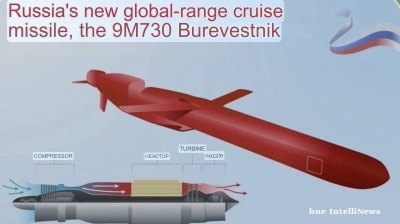
Russia test fires its Burevestnik nuclear-powered cruise missile
Russia’s Burevestnik nuclear-powered cruise missile has no analogues in the world, Russian President Vladimir Putin said, as the Kremlin escalates the unfolding missile arms race with Ukraine another notch.
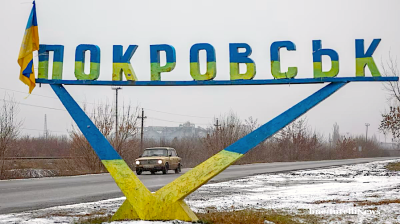
Russia claims to surround Pokrovsk
Russia’s chief of the general staff Valery Gerasimov triumphantly reported to Putin that 31 Ukrainian battalions have been encircled in Pokrovsk and 18 battalions in Kupyansk, the hottest spot in the war.
.jpg)
Brazil and US to start urgent tariff negotiations after Trump-Lula meeting
Brazilian President Luiz Inácio Lula da Silva and US President Donald Trump have agreed to start immediate negotiations on tariffs and sanctions imposed by Washington, following a meeting in Malaysia that sought to ease trade tensions.
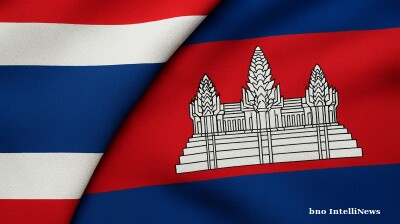
Cambodia and Thailand agree peace deal
Thailand and Cambodia have agreed a peace deal to mark the end of a conflict earlier in the year as Cambodian Prime Minister Hun Manet and Thai Prime Minister Anutin Charnvirakul attended a signing ceremony overseen by US President Donald Trump.


